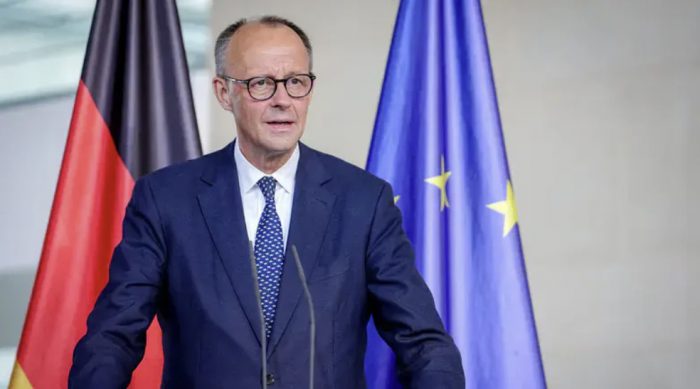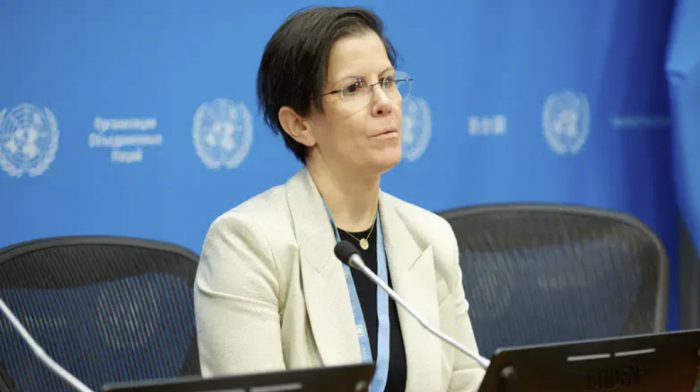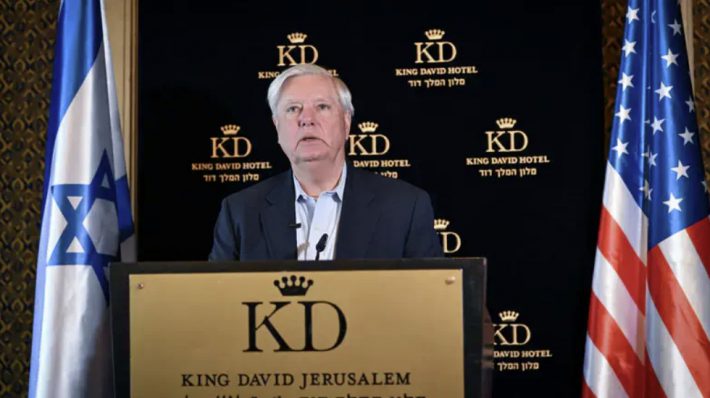Chancellor Friedrich Merz vows Germany will withdraw from Eurovision 2026 if Israel is excluded, blasting anti-Israel bias as “a scandal.”
Merz Draws a Red Line: “If Israel Is Out, So Are We”
German Chancellor Friedrich Merz issued a forceful defense of Israel’s right to participate in the Eurovision Song Contest, warning Sunday that Germany will boycott the 2026 event in Vienna if Israel is excluded.
Speaking on public broadcaster ARD, Merz was asked directly whether Germany should withdraw from the contest should Israel be banned. His reply was unequivocal:
“I would support that. I think it’s a scandal that this is even being discussed. Israel belongs there.”
Merz’s statement comes amid growing efforts by several European countries to politically isolate Israel in cultural and sporting arenas, citing the ongoing Gaza war — a conflict sparked by Hamas’s October 7 massacre of Israeli civilians.
EBU Faces Pressure Over Israel’s Inclusion
The European Broadcasting Union (EBU) — which oversees Eurovision — is expected to hold a vote in November to determine whether Israel will be allowed to compete in the 2026 contest, scheduled for Vienna.
If a majority of the EBU’s active members votes against inclusion, Israel will be barred from participating — an outcome Merz denounced as “disgraceful.”
“Cultural boycotts against the only democracy in the Middle East are nothing less than modern antisemitism dressed in song and spectacle,” a senior German official told Die Welt.
Europe Divided: Spain Leads Boycott Calls, Denmark Defends Fair Play
Spain has already announced it will boycott Eurovision 2026 if Israel competes, with Ireland, Slovenia, Iceland, and the Netherlands issuing similar threats.
However, not all of Europe is following suit. Denmark’s public broadcaster DR declared it will oppose any motion to ban Israel, stating:
“As long as Israel complies with the rules and regulations, there is no basis for exclusion.”
Calls to eject Israel intensified after the 2025 Eurovision in Basel, where Israeli singer Yuval Raphael’s entry “New Day Will Rise” finished second overall — despite receiving minimal jury support but an overwhelming 297 public votes, the highest popular score of the night.
The result exposed a glaring divide between national juries and public sentiment, with broadcasters from Spain, Iceland, Belgium, Finland, and Ireland demanding audits of voting systems — a move widely viewed in Israel as retaliation for public support of its performance.
Political Bias vs. Public Support
While left-wing European broadcasters frame Israel’s potential exclusion as “solidarity with Gaza,” analysts note that Eurovision has repeatedly emphasized cultural neutrality, allowing entries even from wartime nations like Russia and Ukraine in the past.
Chancellor Merz’s stance represents a turning point for Europe’s moral backbone, defending Israel not only as a participant but as a symbol of democratic resilience under fire.
As one Israeli diplomat in Berlin put it:
“When Europe attacks Israel at Eurovision, it’s not about music — it’s about moral clarity. Germany just set the tone.”





